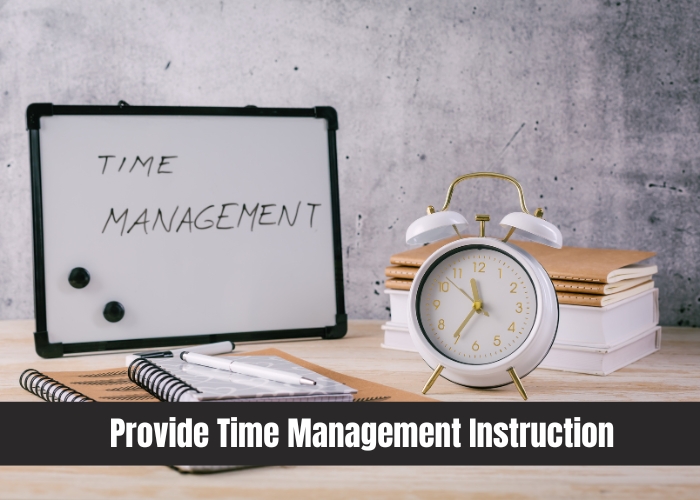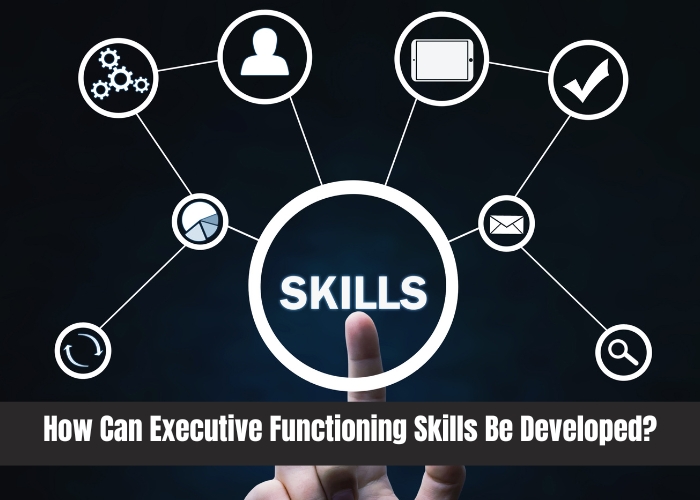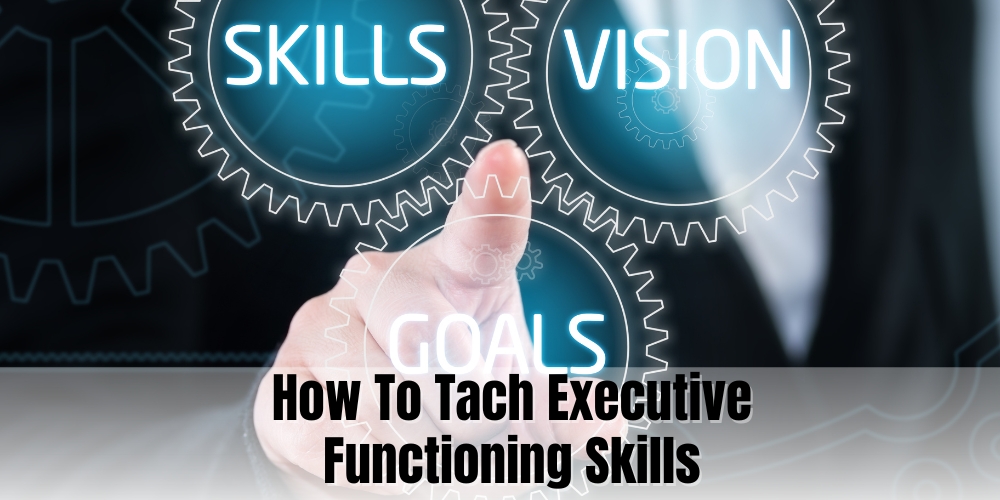Executive functioning abilities are not innate in us. We acquire executive functions through a variety of experiences at different phases of our development. Frequently through educational activities that we offer! Executive functioning, however, should be given more consideration in teacher preparation programs. Therefore, we may need to learn a little bit ourselves in order to offer possibilities to teach executive functioning abilities! We might include exercises, assignments, and questions in Tier 1 Instruction that support the development of our kids’ executive functioning abilities so they may be ready, adaptable, and lifelong learners if we could better define what executive functioning looks like. Let’s talk about How to teach executive functioning skills.
Executive Functioning Skills: What Are They?
For many years, brain development and executive functioning (EF) cognitive processes have been researched and mapped using a variety of models by psychologists, neuroscientists, and board-certified behavior analyzers. To put it simply, executive functions are all the processes our brains go through to organize and manage information, make choices, and plan.
Let me take a moment to clarify that I am not a behavior analyst, psychologist, or neuroscientist. But I work as a teacher. I have therefore devoted years to studying student executive functioning and its relevance to education. I’ll give a nod to our science teachers: we might not fully grasp executive functioning from a scientific standpoint. Nevertheless, we regularly observe indications of executive functioning skills in our classrooms.
These are some useful methods for instructing students in executive functioning.
Being Aware of Executive Functioning Capabilities

It’s critical to comprehend these abilities before instructing students in them. They include:
- Planning: It is defining objectives and laying out a strategy to reach them.
- Organization: Maintaining a record of documents and information.
- Time management: Time management is the art of successfully allocating time to get things done.
- Task Initiation: Commencing work without excessive delay.
- Working memory: It is the ability to store and manage knowledge in the mind.
- Self-Monitoring: Monitoring development and adjusting as necessary.
- Flexibility: The ability to adjust to new information and changing conditions.
- Managing emotions: to accomplish objectives is known as emotional regulation.
Practice and Modelling
The most effective ways to teach executive functioning skills are by practice and modeling:
- Show off your ability to plan, arrange, and oversee tasks. Explain your reasoning.
- Practice: Give students the chance to use these abilities in authentic settings.
Establish Organised Procedures
Executive functioning skills are developed and reinforced by structured routines:
- Maintain Consistent Schedules: Give assignments and activities at specific times.
- Checklists and Planners: Keep track of projects and due dates by using tools such as calendars, planners, and checklists.
Provide Time Management Instruction

The development of executive functioning abilities requires effective time management:
- Time Estimates- Instruct students to calculate their time estimates for assignments and to compare them with the actual amount of time spent on them.
- Assist students in setting priorities for their work according to their importance and urgency.
Enhance Your Organising Capabilities
There are several ways to teach organizational skills:
- Teaching students how to sort and classify data and resources is important.
- Organizational Systems: To keep materials organized, use digital tools, binders, and folders.
Encourage adaptability and flexibility.
Executive functioning abilities that are crucial are flexibility and adaptability:
- Problem-Solving Scenarios: To hone your problem-solving and flexibility skills, use role-playing and scenarios.
- Please encourage students to consider what’s working and make necessary improvements by encouraging them to reflect and adjust.
Techniques for Emotional Regulation
An essential component of executive functioning is emotion regulation:
- In order to control stress and emotions, teach mindfulness and relaxation practices.
- Emotional Awareness: Assist students in recognizing and comprehending their feelings.
Give Encouragement
Executive functioning skill development is aided by positive reinforcement:
- Praise and prizes: To encourage the application of executive functioning skills, utilize praise and prizes.
- Feedback: To assist students in getting better, give them helpful criticism.
How Can Executive Functioning Skills Be Learnt?
Our brains are intricate machines that are always connecting or creating new pathways so that different parts of the brain may communicate with one another.
For instance, we are taught at a young age that a hob is hot. To prevent burns, our brain can send a signal to our hand telling it not to touch the hob.
How Can Executive Functioning Skills Be Developed?

In the prefrontal cortex, executive functioning skills are developed. That’s the part of the brain that forms the connections brought about by our experiences and education. The relationships start in childhood and get stronger as we go through adolescence and mature into maturity. We develop our executive functioning skills and fundamental capabilities during this period.
Even though it seems quite technical, there are a lot of things we can do to support our students as they develop and hone their executive functioning abilities. No, neuroscience is not involved! Yes, it is; we still need to succeed. We may offer chances and experiences that let children form connections in their brains in a secure, encouraging setting during critical developmental times. When presented with comparable situations, students can work towards autonomously implementing the executive functioning skills they have learned.
All Ages Need Executive Functioning Skills
Because experiences create connections in our brains, our brains are always expanding and acquiring new abilities. Our pupils go through a developmental stage when their brains fortify the connections they use the most as they become older and approach adolescence. Their minds become quicker and more effective as a result, much like a motorway on the freeway.
Thus, mastering executive functioning skills is wider than elementary school students. There is no specific age range for when a pupil will become independent with their executive functioning skills; these abilities can be used with students of all ages.
In summary
A person’s future performance can be significantly increased by investing in the teaching of executive functioning abilities. Through the provision of practice opportunities, organized routines, and modeling of these abilities, you can assist learners in acquiring the necessary skills to effectively manage their tasks, accomplish their objectives, and overcome obstacles in life.

